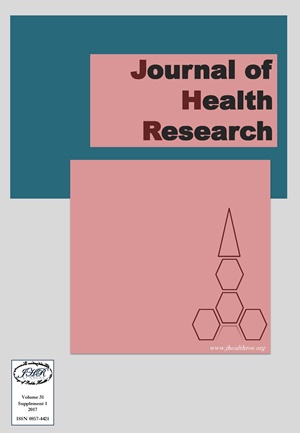Factors Related to Decision-Making towards Participation in Clinical Trials in Diabetes Patients at King Chulalongkorn Memorial Hospital, Bangkok, Thailand
Keywords:
Clinical trials, Decision making, Clinical trial participation, Diabetes, Factors related to decision-makingAbstract
Background: In aspects of ethics and human rights, all clinical trials must be conducted according to the International Conference on Harmonisation-Good Clinical Practice (ICH-GCP) to ensure that the patient is always well-being and safe during participating in the clinical trials; patient’s comprehension should be enhanced with a clear understanding of clinical trial participation before their decision to enter a clinical study. The number of Thai patients participating in clinical trials has increased. There are several factors that affect patient decision making whether to participate or decline to participate in a clinical trial, and to enable better decision making it is important to enhance health professionals’ role to provide better support to their patients. It is therefore imperative to assess patient’s knowledge and attitude about clinical trials before patient’s participation, and to learn and focus more about the factors related to patients’ decision-making towards participation in clinical trials.
Methods: A cross-sectional study through self-questionnaire data collection method described factors related to the decision making process regarding participation in clinical trials. The study was conducted in diabetes patients at King Chulalongkorn Memorial Hospital, Bangkok, Thailand. 110 diabetes patients was included. Multiple logistic regression analysis was used to examine factors that influence phase III clinical trial participation.
Results: Majority was female patients and age range 61-80 years. Some factors that were associated with a positive decision making outcome. Good knowledge and attitude on clinical trial participation was significantly associated with patients’ acceptance of clinical trial participation. Collected data also represented diabetes patients with good knowledge at 60.7% and high level of attitude at 94.6% influencing their acceptance to participate in the clinical trial. Logistic regression analyses showed that the factors best explaining participation were knowledge about clinical trial (p=0.007), attitude towards clinical trial participation (p<0.001), and patient with single status (p=0.025). 56/110 (50.9%) patients accepted to participate in Phase III clinical trials and the therapeutic benefits (60.9%) as primary reason and helping the future of clinical trials as secondary reason for acceptance to participate in Phase III clinical trial in diabetes patient. The influential factors that was significantly associated with decision-making of patient include age (p=0.001), knowledge (p=0.001 by
Chi-square, p=0.003 by t-test), and attitude (p=0.001 by Chi-square and t-test).
Conclusion: The findings can make a difference in the study towards patients’ knowledge and attitude towards clinical trial participation.







